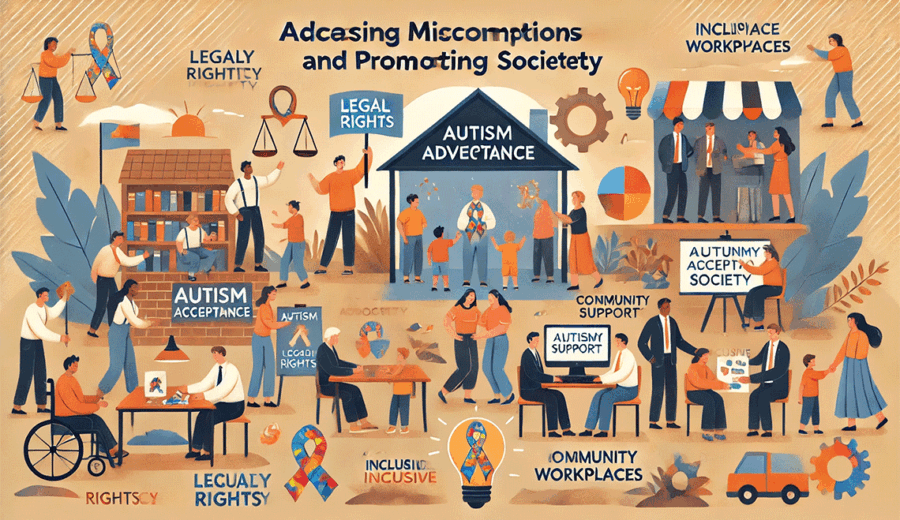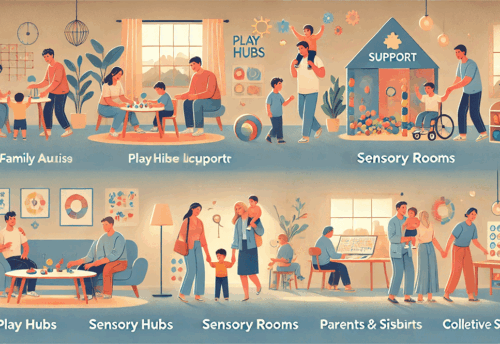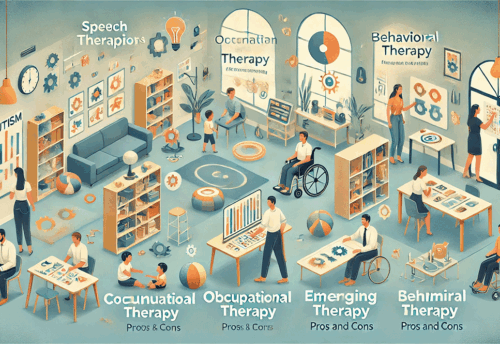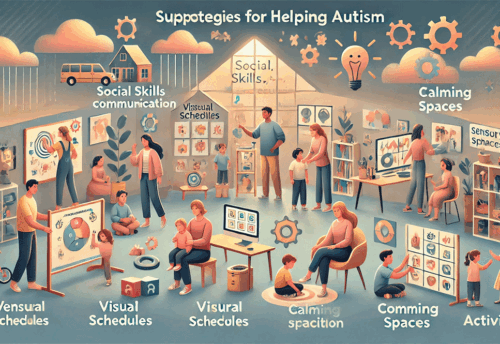
Autism and Society
Autism and Society
Creating a society that embraces autism involves advocacy, understanding, and inclusivity. With growing awareness and support, communities are working to make the world more accessible and respectful of individuals with autism.
Autism Acceptance and Advocacy Movements
Autism acceptance and advocacy movements aim to shift the focus from “curing” autism to respecting and celebrating neurodiversity. These movements encourage the public to see autism as a unique way of experiencing the world. Organizations like Autism Speaks and the Autistic Self Advocacy Network (ASAN) play vital roles in increasing awareness and promoting policies that benefit individuals with autism and their families.
Addressing Misconceptions and Promoting Understanding
Misconceptions about autism can lead to stigma, so it’s essential to promote accurate information:
- Myth-Busting: Addressing myths, such as the misconception that all autistic individuals are non-verbal or have intellectual disabilities, helps promote a more accurate understanding.
- Education Programs: Schools and workplaces benefit from autism awareness training, helping peers and colleagues appreciate the unique strengths and needs of individuals with autism.
Legal Rights, Workplace Inclusivity, and an Autism-Friendly Society
Legal protections, such as the Americans with Disabilities Act (ADA) and the Equality Act in the UK, ensure that individuals with autism have access to public services and equal opportunities in the workplace.
- Workplace Inclusivity: Many companies are embracing neurodiversity, recognizing that individuals with autism often bring valuable skills like attention to detail and creative problem-solving. Inclusive hiring practices, sensory-friendly workspaces, and flexible hours support a welcoming work environment.
- Autism-Friendly Communities: Autism-friendly communities focus on accessible public spaces, sensory-friendly events, and supportive educational programs. Such efforts not only benefit individuals with autism but also foster a society that values all abilities.
By advocating for acceptance, breaking down misconceptions, and promoting inclusivity, society can create an environment where individuals with autism feel respected, supported, and empowered to thrive.





Leave a Reply